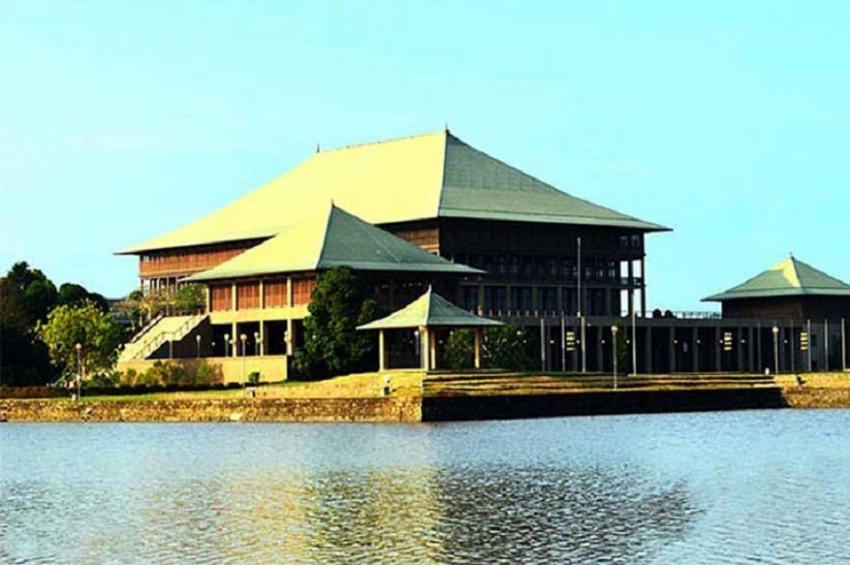We have been talking about crises in Sri Lanka for many years. So, talking about just another crisis is unlikely to excite many people or generate much public interest. But, what we are faced with today is not just another crisis. In fact, what we witness today is an extraordinary situation that we can ignore only at our own peril. It is the culmination of a series of long-neglected economic, political and societal issues. If we fail to identify the gravity of the emergent situation in the country today and explore all possible avenues and find a way out of this unprecedented crisis, consequences for the country and the people can be dire.
More than seventy years have passed since political independence of the country but people inhabiting this landmass have not come together as a cohesive political community transcending ethnic, religious and linguistic divisions.
This is largely due to the failure of post-independence regimes over the last sixty years to adopt appropriate national policies to achieve such a national goal. The result has been intermittent inter-community violence and conflict that not only led to an enormous waste of financial and human resources but also encouraged many people to leave the country. The opportunity cost of unnecessary waste of scarce resources has also been enormous as is evident from the poor state of social infrastructure in the country like education, public transport, public health service and social protection.
Agricultural and industrial development
As for economic development, despite worsening inter-community relations, and even violence, several post-independence regimes were able to adopt agricultural and industrial policies in the ‘50s and the ‘60s that facilitated considerable agricultural and industrial development in the country.
Inadequate economic expansion against a backdrop of a rapidly expanding population and other circumstances resulted in widespread poverty, unemployment and scarcity of consumer goods in the 1970s and these, in turn, prepared the ground for a radical shift in economic policy in the late 1970s in favour of economic liberalization.
Subsequent dismantling of many state-owned industrial and other enterprises led to deindustrialization, while, as well as overseas migration of labour, had a significant negative impact on rural agriculture and small industries.
Rural and urban disparities and income inequalities became more pronounced in the next few decades and, in an ethnolinguistically divided society, emergent inequalities were perceived by many as a reflection of such divisions. 1983 riots against Tamils reflected such perceptions to a considerable extent and more recent riots against Muslims in many parts of the country were also fueled by such sentiments.
The developments outlined above remained largely confined to the national context until Sri Lanka, in more recent years, became closely intertwined with the forces of regional and global geopolitics. Today, it is virtually impossible to talk about the present crisis in Sri Lanka without talking about the role of China and the United States of America. While this is certainly a complex issue, a careful analysis devoid of narrow personal and ideological considerations would have most probably helped the country to avoid the serious issues that have arisen. Today, the country is clearly in the midst of a geopolitical quagmire involving the two superpowers.
When the 30 years long ethnic war came to an end in 2009, many people in the country hoped that post-war regimes would embark upon a process of national reconciliation and sustained social and economic development. Yet, due to the absence of a non-partisan, national level professional body like a national planning council, post-war development and reconstruction process became ad hoc and politically driven.
Most of the investments that were made using borrowed money did not contribute to the development and use of productive capacities of the country for inclusive and equitable development. While agriculture remained stagnant or even declined, there was hardly any labour intensive industrial development in the country.
Many people began to leave Sri Lanka for overseas employment and, faced with a widening trade gap, post-war regimes encouraged labour migration to increase inward remittances. ‘Ranaviruvo’ (war heroes) in turn was replaced by ‘rataviruvo’ (overseas heroes). Meanwhile, the economy became more and more dominated by service industries and the productive sectors remained stagnant or even declined.
Sound public policies
Serious governance issues that emerged during the decade following the war are well known and have been widely discussed so there is no need to go into them here. Suffice it to say that it is this serious governance issue that prepared the ground for the change of regime in 2015. Once again, the almost total failure of the post-2015 regime to live up to public expectations regarding the revamping of governance structures and adoption of sound public policies is well known and needs no elaboration here. While the signs of disunity and lack of any policy coherence among constituent partners of the government became too obvious within months after 2015 elections, the country has moved from one crisis to another over the last four years.
Against the background outlined above, it was unrealistic to expect the present regime to pursue a set of coherent national policies to address development and other issues in the country over the last few years. So, no one was surprised when the government failed to implement a comprehensive national reconciliation programme to promote peaceful coexistence among ethnic and religious communities in the country. Given the fact that disharmony among communities is a product of a whole range of factors such as segregated education, communal politics, prejudice, discrimination and threat perceptions, strict law enforcement to contain violence against communities alone is grossly inadequate to ensure peaceful coexistence.
As is well known, successive governments including the present one have failed to even effectively enforce the law against the perpetrators of violence. It is against this background that we need to look at the most recent terrorist attacks and other violent incidents that followed. The way the government leaders have reacted to these recent developments has made the situation worse.
Enlightened and concerned citizens in the country have witnessed the developments outlined in this article over the last several decades. Many regimes of different ideological persuasions and their leaders have presided over these developments but these regimes and leaders have failed to prevent the deterioration of the situation in the country over time.
Some leaders have been in power for many years, yet, they have not shown any maturity or capacity to learn from mistakes and adopt alternative policies and strategies to address long-standing issues. So, more and more people have come to the realization that there is an urgent need for a new set of politicians and more progressive and innovative policies to steer the country away from the present, deep social, economic, political and environmental crises. Yet, unless the wider voting public also realizes that the future of their own children and that of the country’s youth is really bleak and strives to bring about a radical change in the way the public affairs of the country are managed, there can be little hope for a prosperous and peaceful future for everybody. If such a goal cannot be realized, many people of all walks of life, in particular, more resourceful ones, will leave the country, leaving behind the hapless masses to suffer in silence.
So, the political and policy options for Sri Lankan people to secure a peaceful, just and sustainable future should be clear by now. The path that the country has to follow to reach there therefore has to be a clear departure from the kind of politics and policies that have brought us to the brink of disaster.
While the divisive politics based on ethnicity, religion and political clientelism should give way to a more inclusive form of national politics, state policies that promoted disunity, competition and conflict among communities should be replaced by more enlightened policies that create a sense of unity, solidarity, equality, and cohesiveness among citizens. All other policies also need to create conditions that facilitate the above, besides promoting equitable, sustainable and green development in keeping with environmental and social imperatives.




















